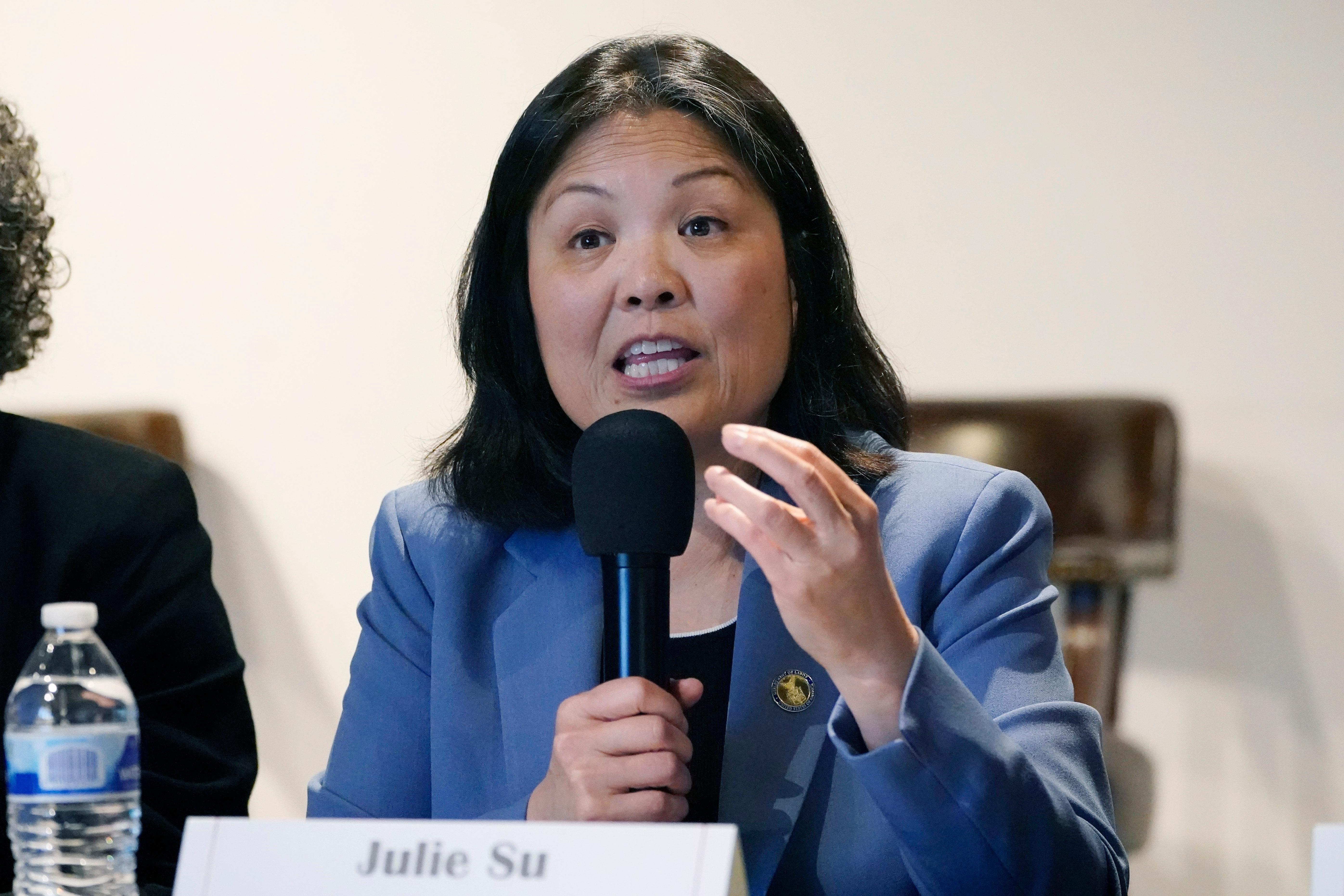The acting secretary of the U.S. Department of Labor visited with Latino workers and organizers in Mississippi's poultry industry last week to discuss abuses and threats levied against them – as well as how the federal agency can better protect them.
The roundtable, which was attended by dozens of workers and community members from across the state, was held at the Immigrant Alliance for Justice and Equity in west Jackson, where many expressed familiarity with the conditions leading to 16 year-old Duvan Tomas Perez's death at the Mar Jac poultry plant in Hattiesburg last July.
Perez, a 16 year old Indigenous Mayan who relocated to Mississippi from Guatemala’s northern highlands with his family in 2017, was pulled into a piece of power-driven chicken processing equipment while working as a nighttime custodian. He was heard yelling for help for several minutes before he perished, according to the incident report, but the equipment was not shut down.
Both federal and Mississippi law forbids minors from working with or near such equipment.
But Perez, who was attending middle school during the daytime, was working under job documentation that identified him as a 32 year old man, according to a subsequent Occupational Safety and Health Administration probe into his death that also resulted in a $213,000 fine issued to Mar Jac for their role in his death.
The Gainesville, Georgia based company – which was among the sponsors of Governor Tate Reeves’ annual turkey pardoning ceremony on Nov. 17 – laid the responsibility of that error on a staffing agency used to procure employees at Mar Jac facilities.
For more than an hour Su spoke openly with the workers in fluent Spanish about their experiences.
“These are very, very difficult jobs, and they’re jobs where too often workers do not bring home the pay that they're supposed to be paid. They are fearful of whether they're going to get injured on the job, lose a finger and even die,” Su told MPB News.
She heard from many about being forced to work near or with dangerous equipment -- often without proper training – as well as facing sexual assault committed by supervisors, stolen wages, preferential scheduling by managers along ethnic lines and the looming threat of deportation should they report those abuses to authorities.
“And they are also feeling very much like their immigration status gets weaponized against them, and that builds deep fear about coming forward. We know that we have to create environments for workers where they can come forward to report what's happening in order for us to put a stop to these abuses.”




